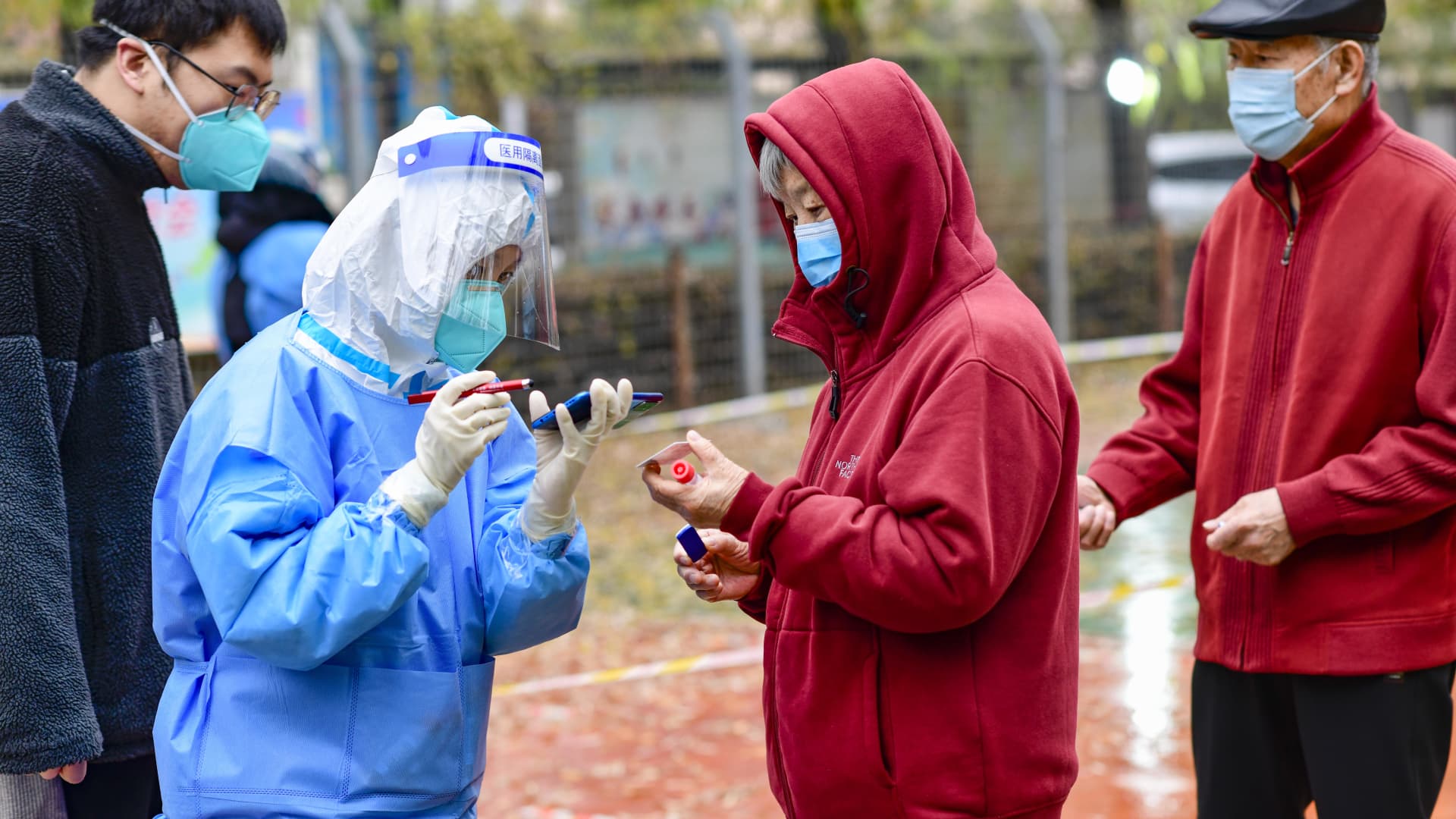BEIJING — China reduced the quarantine time for international travelers by two days, state media said Friday.
Instead of making travelers stay at a centralized quarantine facility for seven days upon arrival in the country, the new rules stipulate a five day quarantine, according to state media. That’s followed by three days of home observation, unchanged from prior protocol.
The new timeframe also applied to close contacts of Covid infections within China, the report said.
In contact tracing, China said it will no longer track people beyond close contacts of Covid infections. Previously, people who were connected to those close contacts might face additional Covid restrictions.
The new measures reduced the number of regional risk designations to two from three — just low and high, the report said.
Overall, the new measures emphasized home quarantine instead of centralized quarantine.
The measures also ended a policy that often resulted in the number of international flights, already operating at reduced levels, getting canceled.
The measures called for setting up a bubble for business people or sports teams entering China. People entering the bubble from China need to be vaccinated, and might need to quarantine once the event ends, the report said.
Shortly after the announcement, the Hang Seng index soared and was up 7%, building on an earlier rally that followed U.S. data indicating relief from a recent surge in inflation.
Travel-related stocks saw a boost, with China Eastern Airlines climbing 6% and Cathay Pacific gaining almost 3% in the afternoon session.
Casino operators MGM China, Wynn Macau and Sands China all saw shares gain around 8%.
China has stuck to its stringent zero-Covid policy, while the rest of the world has shifted to a “living with Covid” approach.
Beijing’s emphasis on what it calls “dynamic zero-Covid” has been implemented with significant variation at a local level, causing great uncertainty and dampening travel.
The number of Covid infections nationwide has surged in the last several days to the highest in about half a year.
— CNBC’s Jihye Lee contributed to this report.
